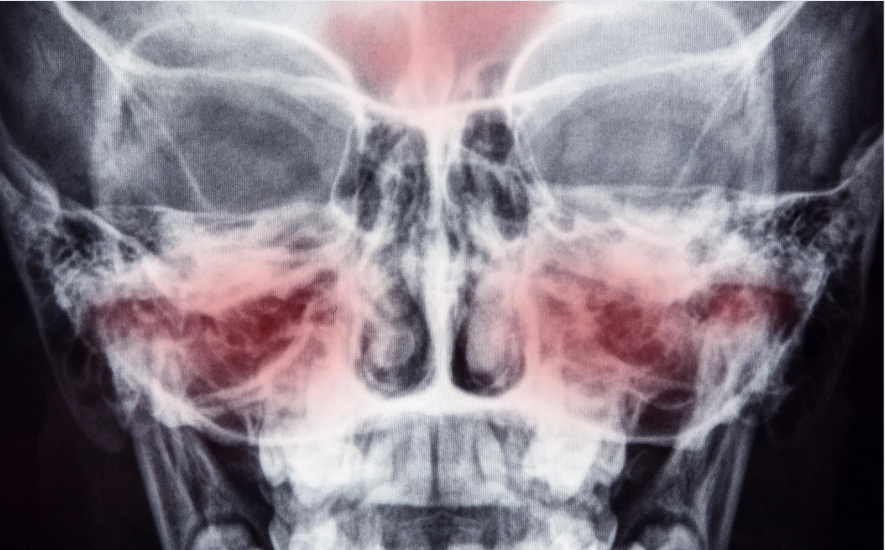Can Sinus Cause Dry Mouth

The relationship between sinus issues and dry mouth, although not immediately apparent, is more interconnected than one might initially think. To delve into this connection, it’s essential to understand both conditions separately before exploring how they might influence each other.
Sinus problems often stem from sinusitis, an inflammation or swelling of the tissue lining the sinuses. This condition can be acute or chronic, with causes ranging from viral or bacterial infections to allergies, and even structural issues like a deviated septum. Symptoms commonly include nasal congestion, facial pain, headaches, and a reduced sense of smell.
On the other hand, dry mouth, or xerostomia, is characterized by a lack of saliva in the mouth. This condition can be uncomfortable and may lead to difficulties in speaking, eating, and swallowing, as well as an increased risk of tooth decay and other oral health issues. Dry mouth can be caused by various factors, including medication side effects, hormonal changes, breathing through the mouth, and certain medical treatments or conditions.
Now, examining the potential link between sinus issues and dry mouth reveals several key pathways through which one might influence the other:
Postnasal Drip and Mouth Breathing: Individuals with sinus problems often experience postnasal drip, a condition where excess mucus from the sinuses drips down the back of the throat. This can lead to discomfort and may cause people to breathe through their mouths instead of their noses to avoid the sensation of mucus accumulation. Mouth breathing is a direct pathway to dry mouth, as it bypasses the natural humidification process that occurs in the nasal passages, leading to dryness in the mouth and throat.
Medication Side Effects: Many medications prescribed for sinus issues, such as decongestants and antihistamines, can have side effects that include dry mouth. These medications work by reducing the production of mucus and fluids in the body, which, while relieving sinus congestion, can also decrease saliva production, resulting in dry mouth.
Nasal Congestion and Swallowing: In cases of severe nasal congestion due to sinus problems, individuals might experience changes in their swallowing patterns. This alteration can affect how saliva is distributed and utilized in the mouth, potentially leading to feelings of dryness or reductions in saliva effectiveness.
Autoimmune Conditions: Certain autoimmune conditions, such as Sjögren’s syndrome, can cause both sinus problems and dry mouth. In these cases, the underlying condition is the root cause of both symptoms, illustrating a more direct link between the two.
Given this understanding, it’s clear that while sinus issues might not directly cause dry mouth in the conventional sense, there are several indirect pathways through which the presence of one can contribute to the development or exacerbation of the other. Managing sinus problems effectively, through medical treatment or by addressing underlying causes, can help mitigate some of the factors that contribute to dry mouth. Furthermore, practicing good oral hygiene, staying hydrated, and using products designed to help manage dry mouth can provide relief for those experiencing this condition.
For individuals dealing with both sinus issues and dry mouth, a comprehensive approach that addresses both conditions and their interrelated factors can offer the best outcomes. This might involve consulting with healthcare professionals to adjust medications, treat the underlying causes of sinusitis, and adopt strategies to manage dry mouth. By understanding and addressing these connections, individuals can work towards alleviating their symptoms and improving their overall quality of life.
FAQ Section

Can sinus infections cause dry mouth?
+Sinus infections themselves do not directly cause dry mouth, but the symptoms and treatments associated with them can contribute to dry mouth. For instance, breathing through the mouth due to nasal congestion can dry out the mouth, and certain medications for sinus infections can have dry mouth as a side effect.
How can I manage dry mouth caused by sinus medications?
+To manage dry mouth caused by sinus medications, it's essential to stay hydrated by drinking plenty of water. Chewing sugar-free gum or sucking on sugar-free candies can stimulate saliva production. You should also avoid caffeinated and carbonated drinks that can worsen dry mouth, and consider using a humidifier in your home to add moisture to the air. If the issue persists, consulting with your healthcare provider about alternative medications or additional treatments for dry mouth may be necessary.
Are there any natural remedies for sinus-related dry mouth?
+Yes, several natural remedies can help alleviate sinus-related dry mouth. Drinking warm liquids, such as tea or broth, can help loosen mucus and keep your mouth and throat moist. Using a saline nasal spray can help reduce nasal congestion, potentially decreasing the need to breathe through the mouth. Additionally, practicing good oral hygiene, including regular brushing and flossing, and using a fluoride mouthwash can help maintain oral health despite dry mouth.
Understanding the nuanced relationship between sinus issues and dry mouth is crucial for managing and alleviating symptoms. By recognizing the potential pathways through which these conditions can influence each other, individuals can take proactive steps towards improving their overall health and comfort. Whether through medical interventions, lifestyle changes, or a combination of both, addressing these interconnected health issues can lead to significant improvements in quality of life.

